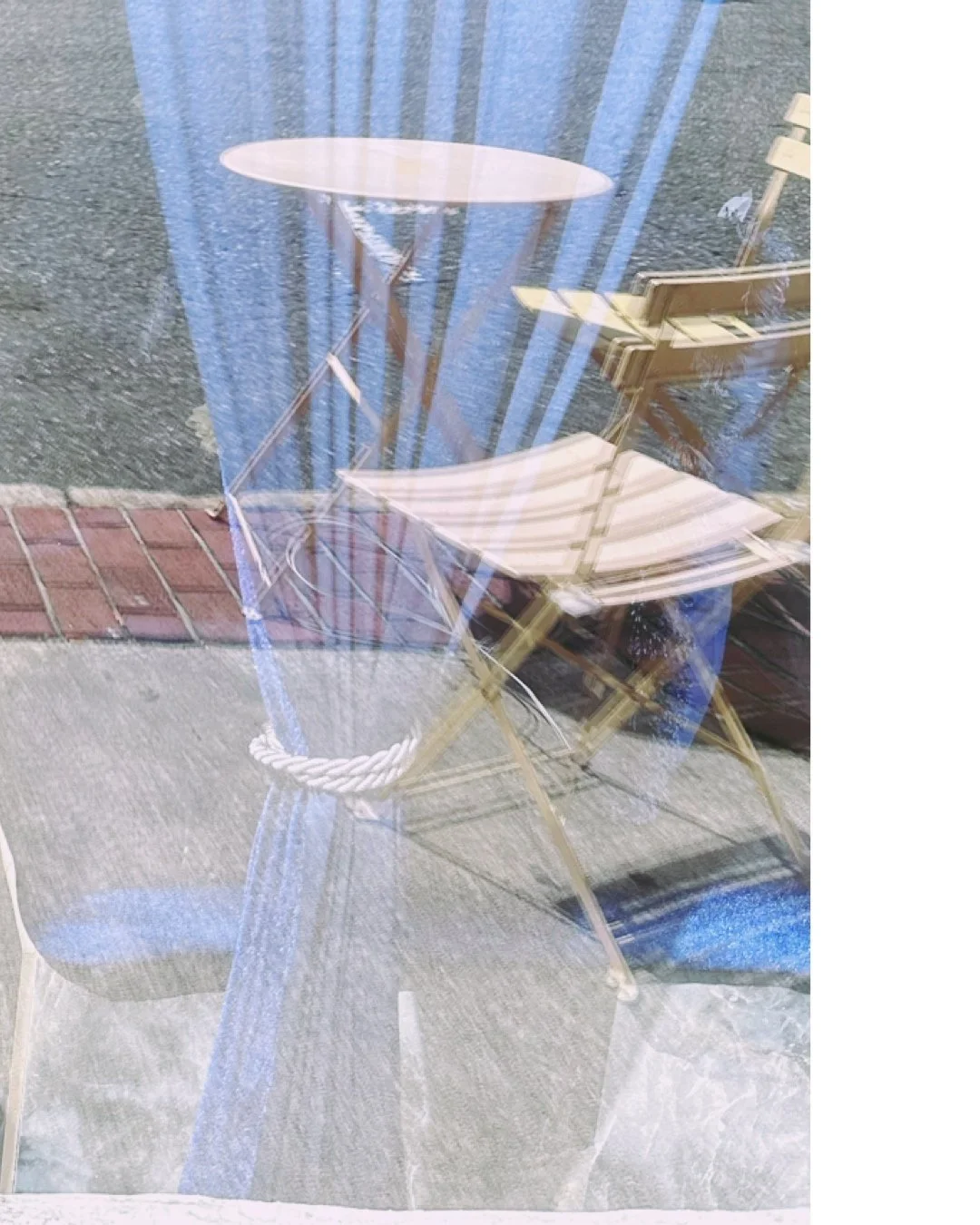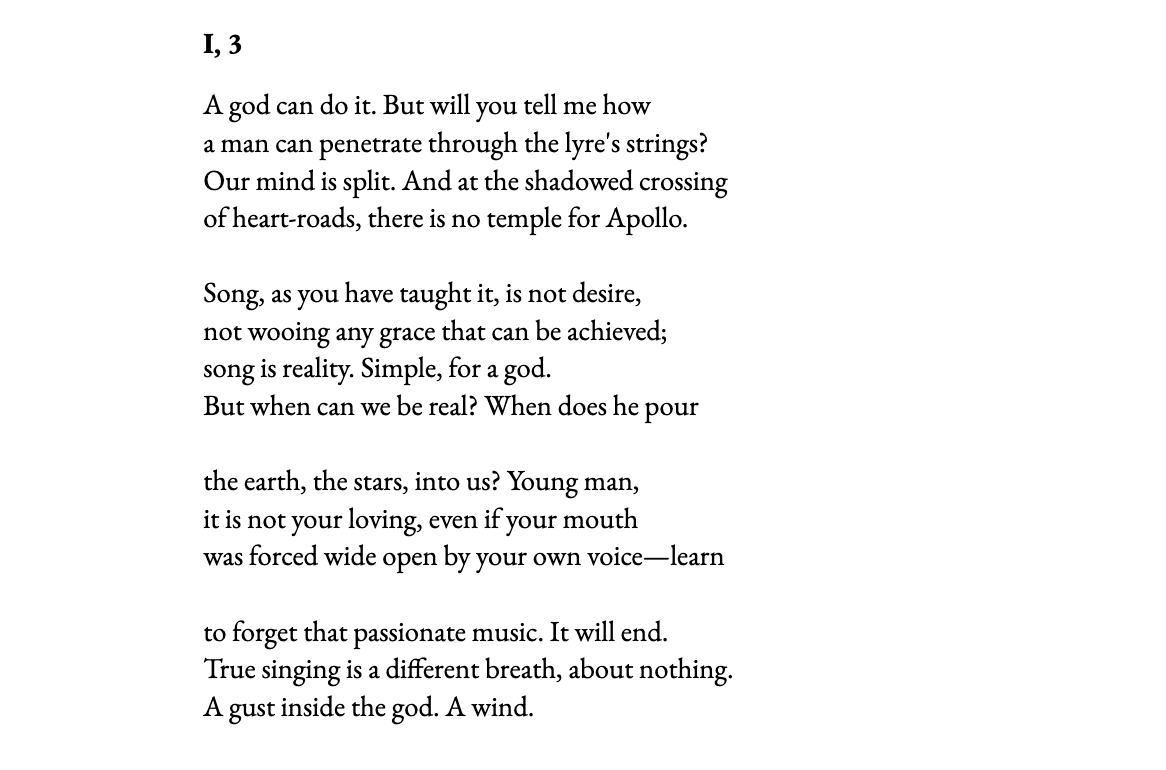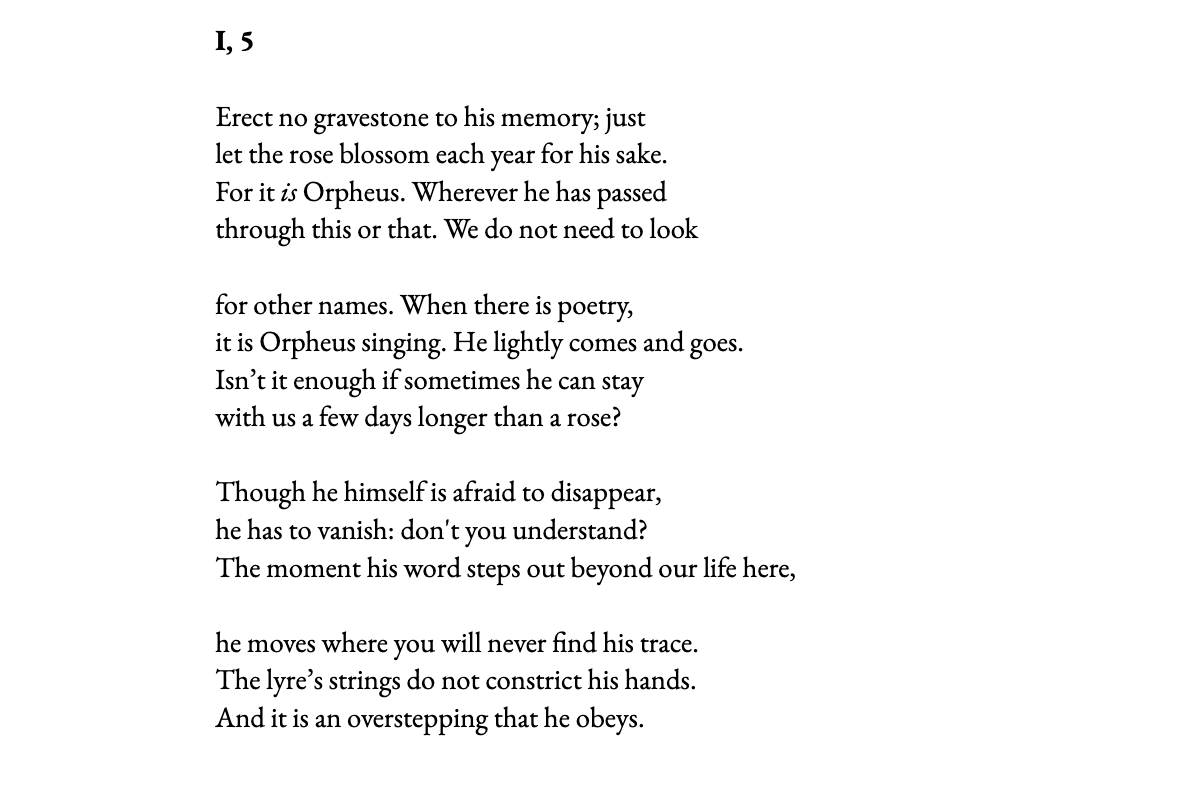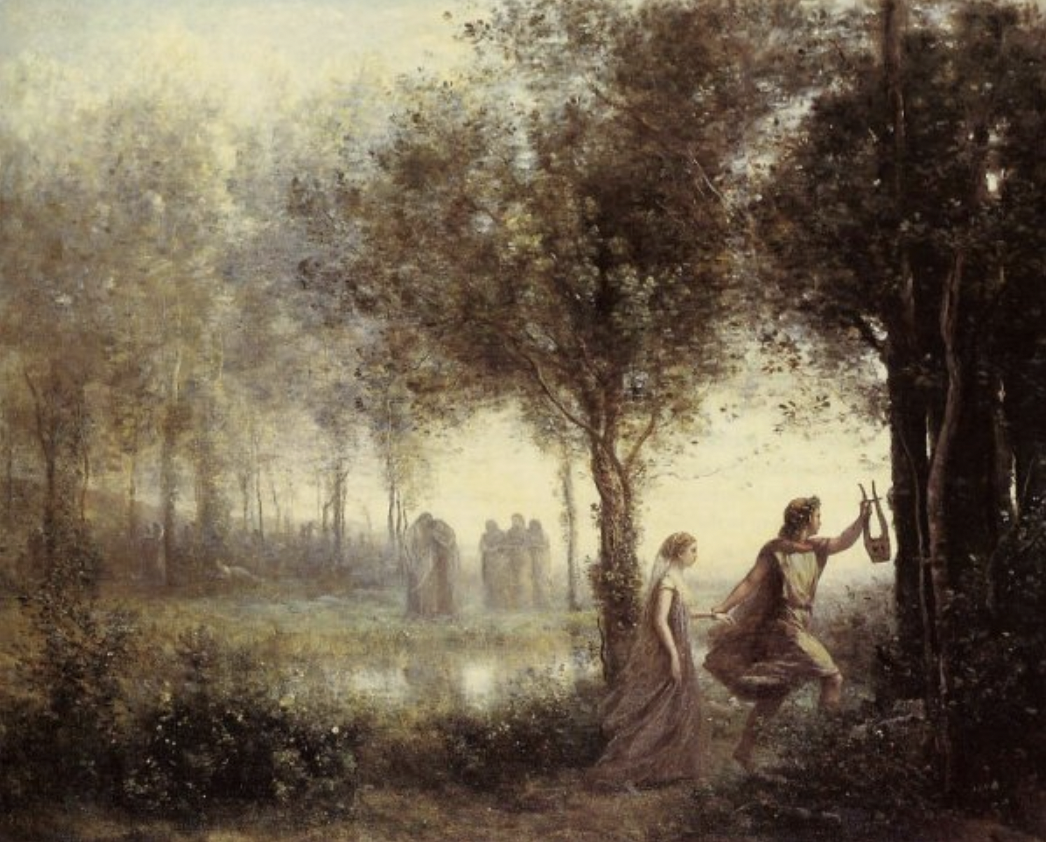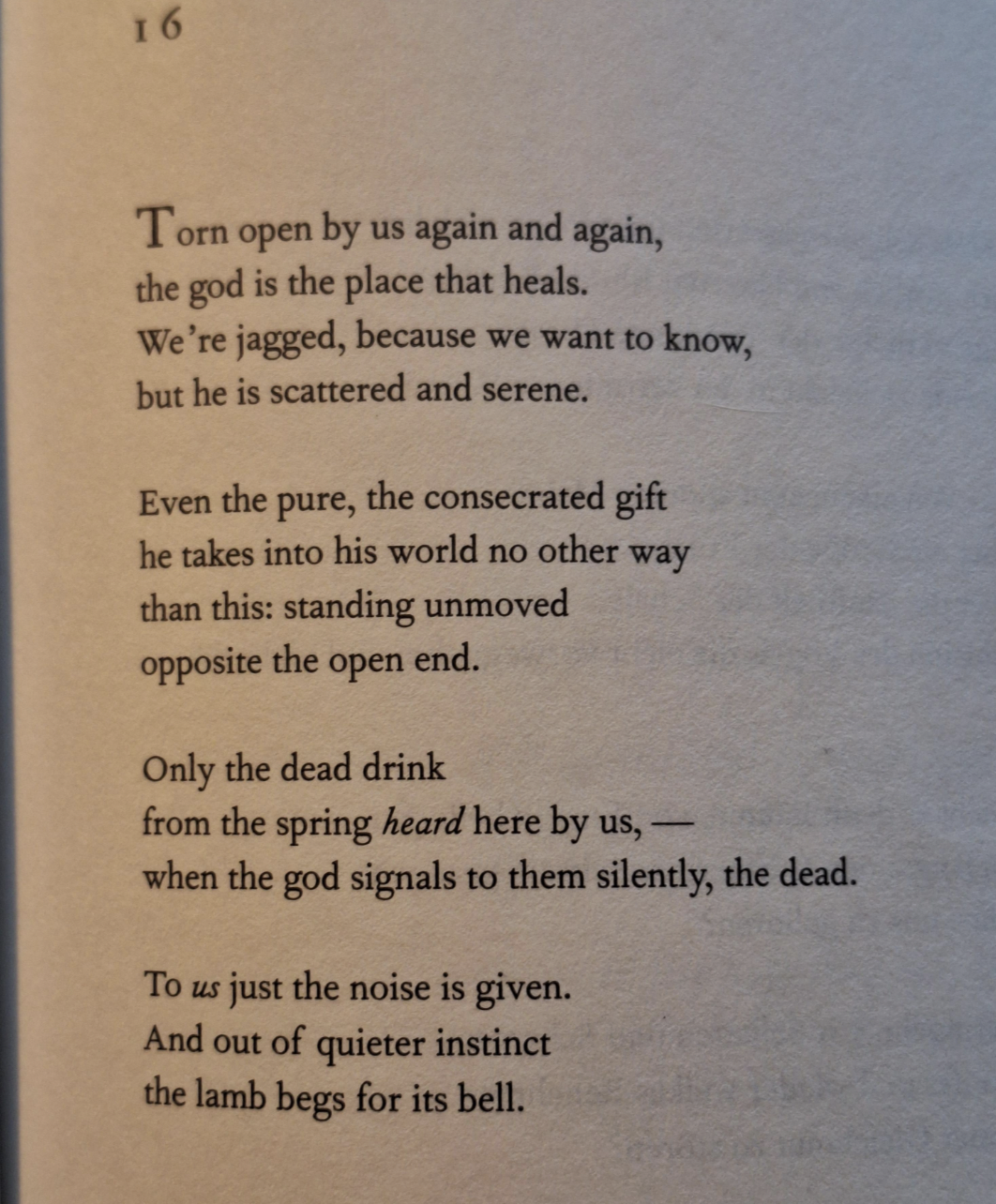The thunderstorm as a vehicle of divine power and wrath moved [James] Joyce's imagination so profoundly that to the end of his life he trembled at the sound.
— James Ellman
Now the fateful day had come . . .
— Samuel Beckett, “Love and Lethe”
1
Preparing for a workshop and scattering crumbs of Beckett and Rilke for any who are also studying the holes they have dug for themselves in the dry dirt near a cave with Paul Valery in one hand and a shovel in the other, as Rainer Maria Rilke perhaps mentions in his with these two poems from the first section of Sonnets to Orpheus, translated by Stephen Mitchell:
Those final two lines are gold to my eyes— and perhaps an ars of sorts.
2
Rilke meets Beckett at a slant, in a letter to McGreevy dated September 8, 1934, wherein B tells his friend about revisiting the artworks and (yes) the yellows that fascinate him. The letter is lengthy, chaotic, polylingual, punctuated by B’s characteristic wordplay and punning. Impressions from an exhibition . . .
Then I went to see Goldsmith. La gueule rose et grave à en mourir. [ . . . ] Richard was back at the gears en route for the Loire. I said that when a man had got into the habit, as I would have seemed to, of estimating his life in terms of apprehending (the eyes closed at this first sign of danger & the wary wobble of the jowls) & the motive for living as the impulse to understand perhaps a little improvement on self-justification in the sphere of welfare-working, the only calamity was suspension of the faculty or, worse still, the need, to apprehend & understand. He stood up: Some people apprehend too much, goodbye, know there's no good asking you for dinner, lunch some day, goodbye.
The covey seemed nice after the rest from him & we got going again. I had an appointment yesterday, but had to put him off on account of my eye which has been rather bad but which is all right today more or less, thanks to stupor, eye-shade & optrex. Also one of the more endearing derivatives of impetigo on my lip, where there is quite a little colony of erectile tissue as I discovered during my holiday. I have hopes of analysis going a bit faster now. If I could get it over by Xmas I'd be crowned.
What a relief the Mont Ste. Victoire after all the anthropomorphized landscape - van Goyen, Avercamp, the Ruysdaels, Hobbema, even Claude, Wilson & Crome Yellow Esq., or paranthropomorphised by Watteau so that the Débarquement seems an illustration of "poursuivre ta pente pourvu qu'elle soit en montant", or hyperanthropomorphized by Rubens - Tellus in record travail, or castrated by Corot; after all the landscape "promoted" to the emotions of the hiker, postulated as concerned with the hiker (what an impertinence, worse than Aesop & the animals), alive the way a lap or a fist is alive. Cézanne seems to have been the first to see landscape & state it as material of a strictly peculiar order, incommensurable with all human expressions whatsoever. Atomistic landscape with no velleitiés of vitalism, landscape with personality à la rigueur, but personality in its own terms, not in Pelman's, landscapality. Ruysdael's for Rusdael's Entrance to the Forest - there is no entrance anymore nor any commerce with the forest, its dimensions are its secret & it has no communications to make.
Jean-Baptiste-Camille Corot, Orpheus Leading Eurydice from the Underworld (1861)
And when, abruptly,
the god put out his hand to stop her, saying,
with sorrow in his voice: He has turned around –,
she could not understand, and softly answered
Who?
— Rainer Maria Rilke trans. Stephen Mitchell
3
Samuel Beckett to Sunny on 5 May 1934:
If, for example, I read in the paper that poor Mr. So-and-so is to be executed early in the morning, before I get out of bed, and immediately start to congratulate myself that I do not have to spend such a night, I deceive myself in as much as I compare two circumstances instead of two emotions. And it is highly probable that the man condemned to death is less afraid than I. At least he knows exactly what is at stake and exactly what he has to attend to, and that is a greater comfort than one is generally inclined to believe. So great that many sick people become criminals solely in order to limit their fear and gain that comfort. Only beyond speculation does man reach his Eden, that refuge where there is no more danger, or rather one which is determined and which one can bring into focus.
And here is Edward Snow’s translation of Rilke’s sonnet II.16 to Orpheus:
I'm walking in the city at dark
Remembering, remember light
Thinking of nothing, and the shooting stars
*
Grace Mazur, “What is a Moment? — Two paintings of the wounded Eurydice by Jean-Baptiste Camille Corot,” The Arts Fuse.
Ignaz Brüll, Melodie in a minor, Op.53/2
Jean-Baptiste-Camille Corot, Silenus (1838)
Jean-Baptiste-Camille Corot, Orpheus Leading Eurydice from the Underworld (1861)
Oscar Mantel, “Against Castrated Art”, Virginia Quarterly Review, Autumn 1979.
P. J. Harvey, “The Sky Lit Up” (Demo)
P. J. Harvey, “Missed” (Demo)
Rainer Maria Rilke, Sonnets to Orpheus translated by Stephen Mitchell
